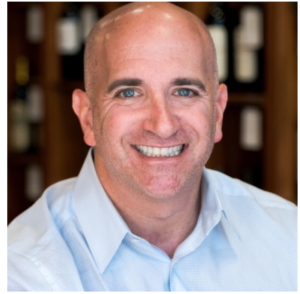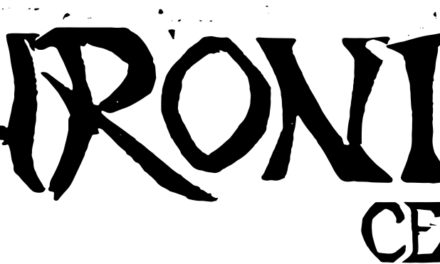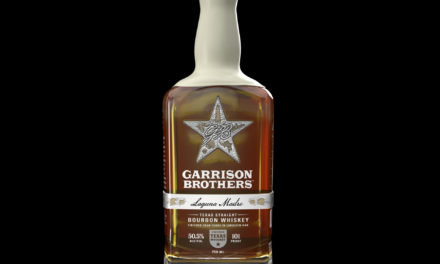As the Covid-19 pandemic continues to undermine the global economy, U.S. business owners are looking to the federal government for help. In March, Congress passed the CARES (Coronavirus Aid, Relief, and Economic Security) Act, promising $349 billion in small business loans. The two major portions of the initial act were the Payroll Protection Program (PPP) and Economic Injury Disaster Loans (EID).

“People will be asking, ‘What does my [insurance] policy cover and what doesn’t it?’” —Brian Rosen, BevStrat
Here’s where the COVID-19 relief funding programs currently stand.
Payroll Protection Program
The purpose of PPP is to protect employees and stop economic collapse by getting money to people who can put it back into the economy, says Brian Rosen, president and founder of wine and spirit consultancy BevStrat. “But employers will have to prove their employment during a three-month period before the crisis and be able to provide historical employee data. You will also need to keep [those employees] three months after. And these are only for regular paychecked employees. Gig economy or contract workers aren’t covered.”
But right from the start, getting the money wasn’t easy.

“Applicant businesses that don’t get approved right away need to bring it up again and start talking to other banks. Persistence is really important here.” —Kirk Faris, Moss Adams
Says Kirk Faris, senior manager for international financial advisory firm Moss Adams, his clients who already had a strong relationship with their bank tended to get better results than those who didn’t, as banks have restrictions and tend to be overly cautious.
An April 15 report on CNN.com warned, the Small Business Administration had notified its lenders that, “Once the authorization limit is reached, SBA will not be able to accept any new applications for the Paycheck Protection Program.” What’s worse for business owners, “SBA is unable to maintain a queue for PPP applications.”
Regardless, Faris advises keeping at it: “This program is most likely going to get more funding. Applicant businesses that don’t get approved right away need to bring it up again and start talking to other banks. Persistence is really important here.”
Economic Injury Disaster Loans
EID isn’t new, but rather an existing program administered through the SBA (as opposed to banks) and expanded by the CARES Act. By all accounts, EID is moving forward—albeit slowly—with funding.
There are two parts to the EID, the loan itself and an Emergency Advance. If you apply for a loan, you will get an advance of up to $10,000 even if the loan is not approved (an EID Emergency Advance doesn’t have to be repaid). The loan is forgivable at $1,000 per employee to the maximum $10,000. Businesses can apply for both an EID loan and a PPP loan, but funds can’t be used for the same purposes.

“Congress’ intent was to have the PPP for all businesses, while emergency disaster loans can include businesses that have agriculture as part of their business.” —Michael Kaiser, WineAmerica
Despite some initial confusion, wineries are eligible for EID, although a vineyard-only operation, which is deemed purely agricultural, is not.
“Agriculture is excluded because agriculture, in theory, has existing disaster relief programs through the Department of Agriculture,” says Michael Kaiser, vice president of government affairs for the National Association of American Wineries. “Congress’ intent was to have the PPP for all businesses, while emergency disaster loans can include businesses that have agriculture as part of their business.
“Wineries have to use the loan for specific winery-related basis and not vineyard-related things if they’re also a vineyard business. The people who are straight-up vineyard operators can’t apply.”
Kaiser advises that, where the EID application asks applicants if they’re an agricultural enterprise, winery/vineyards should not check that box. And in the case of either program, keeping comprehensive records will make applying easier and protect businesses down the line if unexpected consequences of the loans emerge.
SBA Affiliation
Since passage of CARES, a major catch has popped up that could affect any beverage alcohol business with a complicated ownership structure. “The biggest snag we’re noticing is the SBA affiliation rule, which looks at whether a company should be thought of as itself or as part of a group,” says Faris.
“If you’re a brewer with 50 employees, but the majority owner has another business with more than 500 employees, the affiliation rule could be a bad ‘gotcha moment,’ and the brewery may not be eligible.”
With a couple hundred pages of regulations setting limits on general partners as well as majority owners, the affiliation rule could hold up relief for many businesses. Faris recommends anyone who’s uncertain about their status contact their attorney or accountants before applying.
Social Security Deferment
Another less-discussed part of the legislation is a program for payroll tax deferment, which lets businesses postpone paying their share of the Social Security payroll tax for the remainder of 2020 (half of deferred payments will be due by the end of 2021 and the other half by the end of 2022).
Qualifying employers (those with fewer than 100 employees) can get a credit of 50 percent of what’s owed. “If, for some reason, they’re not eligible or couldn’t get a PPP, this could be a really valuable tool for them,” says Faris.
Employers can be immediately reimbursed for the credit by reducing their required deposits of payroll taxes that have been withheld from employees’ wages by the amount of the credit. If the employer’s employment tax deposits aren’t sufficient to cover the credit, the employer may even receive an advance payment from the IRS by submitting Form 7200 (Advance Payment of Employer Credits Due to COVID-19).
Insurance Limits
Many business owners have discovered that, to their dismay, their insurance policies aren’t going to be much help. According to Rosen, getting payments will be tricky (at the very least).
“People will be asking, ‘What does my policy cover and what doesn’t it?’” he explains. “Insurance companies, at least in the short term, seem to be balking at force majeure clauses or lost revenue claims.” (A force majeure clause is a contract provision that relieves the parties from performing their contractual obligations when certain circumstances beyond their control arise.) A lot of [beverage alcohol producers] have loss of business policies where acts of God and impact of diseases are not covered.
Jayne Engle Allen, vice president at Engle & Associates Insurance Brokers in San Luis Obispo and Morro Bay, Calif., wrote on her company’s website that, “Business income generally requires a direct physical damage loss—i.e. fire, wind, etc.—to trigger income replacement coverage. Shutting down due to COVID-19 is not a direct physical loss. Furthermore, most coverage forms also contain a standard virus and bacteria exclusion.”
These programs and others are constantly being updated to better address the ongoing crisis. It’s important to stay updated on the latest news as the pandemic advances and the U.S. government rolls out more protections and relief.











